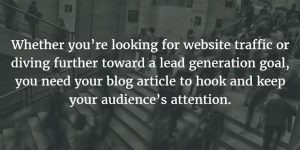Far from feeling threatened by the incursion of AI into marketing, women should realize they are well-placed to seize promising opportunities.
Theresa Kushner on May 29, 2024

- What AI is and isn’t so that we have a clearer picture of the field we play in.
- What skills will be needed to operate effectively in the future environment.
- What women, specifically, should do in the world of marketing.
What AI is and isn’t
- AI is a powerful tool. It can think, learn, and act like a human. AI technology aims to recognize patterns and make decisions, and judgments like humans. It has achieved parts of this goal in some areas. Computer vision is one of the areas where AI pattern recognition excels. Today, AI applications can recognize objects and faces and classify objects based on their images.
- AI today is not about creating sentient machines or replacing humans. It’s about creating tools that augment human intelligence and capabilities. Although research is ongoing to elevate the capabilities of AI algorithms, today, AI is not a sentient machine. It cannot feel as a human does. It does, however, excel at pattern recognition and generating coherent responses. Those responses, however, lack self-awareness, subjective experiences, and an understanding of the world in a conscious sense.
- AI is not magic. Although some AI applications have been known to hallucinate (i.e., give completely off-base answers), they are built on real-world algorithms, data, and machine-learning techniques that have been around for over 75 years.
- AI has both positive and negative potential. Like all technology, its value is based on how it is used. It’s important to use AI responsibly and ethically. Just as the internet has enabled us to communicate more broadly with people, it has also enabled bad players to reek vice, greed, and sorrow in the world. However, every new technology faces the same dilemma. Swords, knives, guns, and bombs have all caused society to think about their use or misuse.
- Data Analysts. AI can automate data collection, analysis, and reporting tasks, reducing the need for manual data manipulation and interpretation.
- Digital Ad Managers. AI-powered algorithms can optimize digital ad campaigns in real time, minimizing the need for human intervention in tasks like bid management and audience targeting.
- SEO Specialists. AI-driven tools can analyze vast amounts of data to identify trends and optimize website content for search engines, potentially reducing the need for manual keyword research and analysis.
- Content Creators. While AI can assist with content creation through tools like natural language generation, more is needed to replace human creativity and intuition fully. It does, however, streamline processes like content ideation and basic writing tasks.
- Market Researchers. AI can automate survey analysis, sentiment analysis, and trend identification, reducing the manual effort required for market research tasks.
- Email Marketers. AI can optimize email campaigns by analyzing user behavior and personalizing content, potentially reducing the need for manual segmentation and A/B testing.
- Social Media Managers. AI tools can automate social media posting, content scheduling, and audience engagement to some extent, although human oversight and creativity are still essential.
- Executives demand more significant use of AI to support productivity, lower costs, and create next-generation capabilities for their stockholders.
- Marketing remains under pressure from executive teams to prove the return on marketing investment. In some industries, marketing is suffering a value crisis as chief revenue officers weigh the cost of marketing over salespeople.
- AI technology is seen as the answer and is being deployed in nearly every Marketing process, whether applicable or not. It is heavily integrated into marketing operations and is becoming more integrated into data, research, and content creation.
What Skills do You Need in an AI world?
- Social interaction. This is not just the ability to write a quick text; it also includes engaging in conversations by listening carefully to others, collaborating, and self-regulating emotions.
- Creativity. Recently, a design instructor revealed that her college students have incredible skills in manipulating design tools but lack the creativity to create original designs.
- Critical thinking. This is the ability to solve problems that don’t necessarily fit a known pattern. Logical reasoning enables us to examine AI outputs and see flaws or inconsistencies. When we apply reflective thinking and rational thought to AI outputs, we see the bigger picture, the broader ramifications or implications.
- Curiosity. AI technology can usually answer questions like “what?” and “how?”, but may have trouble always answering the “why.” Human curiosity generates the desire to know the answer to “why.” Unlike the curious two-year-old, AI will not always answer “why.” Humans must initiate questioning about reasons for actions. Asking the right question becomes even more critical in an AI world.
- Unbiased decision-making. Bias is inevitable; everyone has it. AI, however, can easily perpetuate it by creating biased solutions. Without a human involved to ferret out biased outputs or, at least, to call attention to them, AI solutions could propose unfair insurance coverage rates, prescribe inappropriate drugs to patients, or eliminate a very qualified individual from the interview cycle.
| + | – | |
| Men | Physical presence Direct, to the point Display power |
Overly blunt Insensitive to audience Too confident in own opinion |
| Women | Read body language Good listening skills Display empathy |
Overly emotional Meander in thought Not authoritative |
What should women specifically do in the AI world?
- Educate yourself.
- Network.
- Advocate for unbiased AI.
(9)







